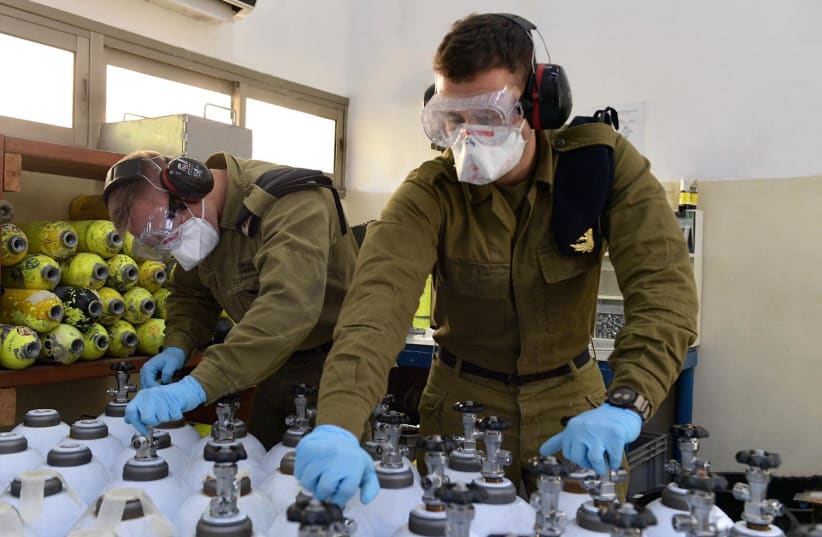We could barely move the chairs around to get the four of us sitting in the tiny, closet-like office space. There was a small desk behind which sat Benjamin Netanyahu, head of the opposition, while I sat facing him from the opposite side with our two guests.
The year was 2008, and Dan Senor and Saul Singer were interviewing Netanyahu, as both a former prime minister and former finance minister, for a book they were working on. They peppered him with questions for over an hour as to both the how and why behind Israel having become such a technological powerhouse.
A central theme in this discussion was the military, and how central this rite of passage was is in shaping the Israeli ecosystem. The women and men of the IDF are trained with a unique attitude and approach, and this is critical in shaping the drive and motivation for a burgeoning tech sector, unparalleled the world round.
Roughly one year later, Senor and Singers bestseller, Start-Up Nation, hit US bookstores and became an instant hit. Not only did the book become a must-read amongst the pro-Israel and international business communities, its title became synonyms with the tiny Jewish state.
When asked by a family member in the United States why Israel has been so successful in our combat with the COVID-19 pandemic, the Start-Up Nation premise came to mind. Yet the approach that Senor and Singer attributed to our success in the world of technology has another element to it.
While Israeli soldiers are encouraged to ask questions and not just accept military strategy dictated from above, once a decision is finalized, military discipline is enforced without compromise. While the ability to question authority is a strength in developing a certain work ethic, the ability to follow final directives is an asset when fighting a pandemic.
Military service in Israel is mandatory, and as such, much of the population has served or is currently serving. When Prime Minister Netanyahu, after much government debate and deliberation, outlines clear restrictions and regulations, military discipline kicks in.
While many other countries struggled at first to take the necessary steps needed to slow this ugly pandemic, Israel was quick and agile in its response, meeting the virus with a united and regimented front.
In contrast, the two groups in Israel that are less likely to serve in the IDF, the ultra-Orthodox and Arab communities, were also the two groups hesitant in their response to government restrictions. As a result, the virus spread like wildfire through places like Bnei Brak and Jerusalem’s haredi and Arab neighborhoods, and more focused and vigilant lockdown measures were needed.
ANOTHER SECURITY reality that has been ingrained in us is a similar discipline has been the years of living under rocket fire. For many years, the only active bomb shelters were in northern Israel and near the Gaza border, while the rest of Israel was felt to be out of range.
Starting with the Gulf War and later from conflicts in Lebanon and Gaza, all of Israel became a target. While the Iron Dome and other missile-defense systems have limited the efficacy of rocket attacks, we the people were trained to not take chances. When the sirens sound, the people of Israel head for a safe room or find cover. When security and safety are at risk, our army discipline kicks in.
There are obviously many other factors and figures that account for our relative achievement. Defense Minister Naftali Bennett has done a fantastic job in navigating the ministry’s many critical roles in this battle. But Bennett’s greatest impact came from his initial public campaign, which eventually went global.
When Bennett explained that loving our parents and grandparents meant staying away, Israeli children and grandchildren saluted and immediately followed this directive. Isolating the most vulnerable demographic from the groups most likely to be asymptomatic has proven essential.
Israel’s demography is another important factor. Israel’s median age is roughly a full decade younger than it is in Italy, France, England, the US and much of the Western world. This has had a direct and clear impact on the number of sick and dead. Age is one of a handful of additional factors that have, thankfully, played out well for us up to this point.
The road to ultimate success remains a lengthy one, with many challenges and difficulties ahead. While the health component was initially the lone concern, today we face many other daunting tasks.
Staggering levels of unemployment, widespread bankruptcy, and significantly increased poverty have left millions of Israelis vulnerable and fearful about what the future may bring. Now more than ever we will need true leadership, perseverance and a united front. Just as we were taught in the IDF, no brothers and sisters should be left behind.
Public debate in Israel is extremely dynamic on the various strategies to defeat the coronavirus pandemic, how to navigate our economic recovery, and how to restore our educational system. The age-old adage, two Jews and three opinions, is definitely applicable to our political and policy debates, and partially explains what makes Israel the Start-Up Nation.
Facing this horrific pandemic, we can be grateful that in implementation of safety rules and regulations, our military instincts kick in and we strictly adhere to decisive orders. In the words of a leading US thinker, discipline is the bridge between goals and accomplishment.
The writer is the former chief of staff to Prime Minister Benjamin Netanyahu, and a leading international political and business consultant.
